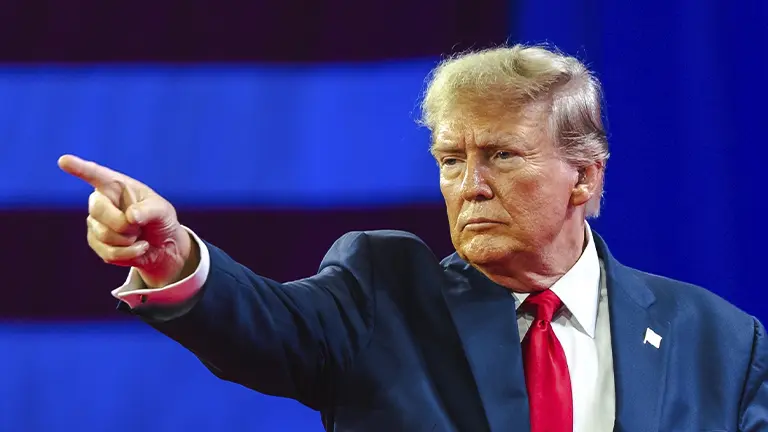In a bold move set to reshape U.S. trade policy, President Donald Trump has announced plans to establish a new government agency, the External Revenue Service (ERS), designed to collect tariffs, duties, and other revenues from foreign sources.
The proposed ERS will function separately from the existing Internal Revenue Service (IRS), which handles domestic tax matters, and will specifically focus on foreign entities engaged in trade with the U.S.
Trump, who is set to begin his second term, explained that the creation of the ERS aligns with his administration’s long-standing goal of ensuring foreign businesses pay their “fair share.”
He emphasized that the ERS will help ensure a level playing field for U.S. businesses by monitoring and collecting payments on goods and services entering the country.
“We are going to make sure that foreign companies contribute to the U.S. economy just as much as domestic companies,” Trump stated during a public address, stressing that the agency would collect funds from trade profits generated outside U.S. borders.
However, the announcement has sparked a wave of criticism, particularly from figures within the administration and economic experts, who argue that the ERS may not be the solution it promises to be.
Critics point out that the U.S. already has several agencies dedicated to overseeing tariffs and duties, most notably U.S.
Customs and Border Protection (CBP). They argue that the creation of the ERS could lead to unnecessary duplication of efforts, creating inefficiencies within government operations.
U.S. Treasury Secretary Janet Yellen, a vocal critic of Trump’s proposal, warned that the new agency would fail to deliver the cost-saving benefits promised by the administration.
Yellen emphasized that the tariffs imposed by the U.S. are ultimately passed on to consumers, driving up prices for American households.
“This is not the right way to tackle the concerns Americans have about rising prices,” Yellen said. “Instead of helping the economy, the ERS could actually exacerbate the situation.”
Market analysts have expressed caution as well, citing concerns over the potential negative effects on international trade and the competitiveness of U.S. companies in the global market.
Imposing additional tariffs could lead to retaliatory measures from trading partners, undermining the benefits of free trade agreements and creating friction in already fragile international relations.
While Trump’s supporters argue that the ERS will strengthen the U.S. economy and curb unfair foreign trade practices, the proposal has been met with skepticism in both the private sector and government circles.
Investors, who have largely favored Trump’s pro-business policies, have shown mixed reactions, with some worrying that the tariffs could drive up operational costs for American companies and diminish the country’s standing in global markets.
As Trump’s inauguration nears, the specifics of how the ERS will operate remain unclear.
With many unanswered questions about its structure and implementation, the establishment of the External Revenue Service promises to be a contentious issue as the new administration prepares for its second term.
Critics, including Yellen and trade experts, will continue to challenge the proposal, urging the president to reconsider the path forward.
The coming weeks will likely see a flurry of debate and legislative action as lawmakers and government officials weigh the potential benefits and risks of the new agency, while the broader public remains uncertain about the long-term impact on U.S. trade, prices, and economic stability.
As the dust settles on Trump’s announcement, only time will tell whether the ERS will emerge as a transformative force or a costly misstep in U.S. trade policy.
Also Read
Joann Inc. Files for Bankruptcy for the Second Time in a Year Amid Ongoing Struggles
USDOT Sues Southwest Airlines and Fines Frontier for Chronic Flight Delays
